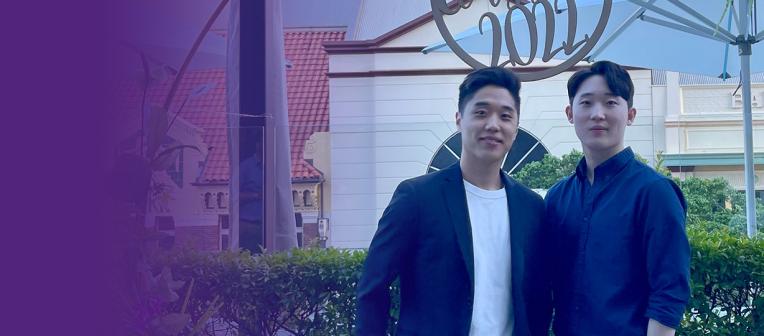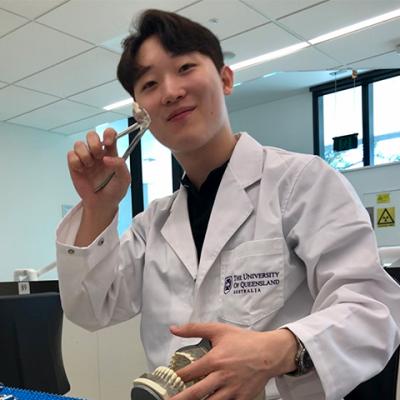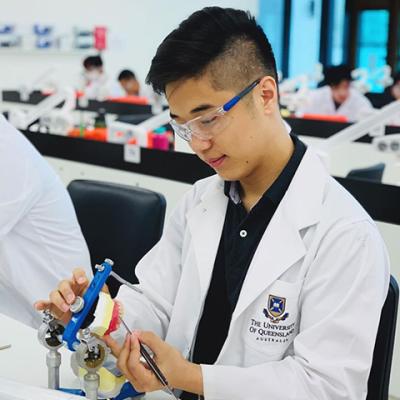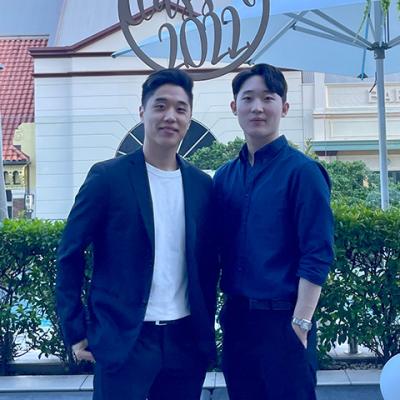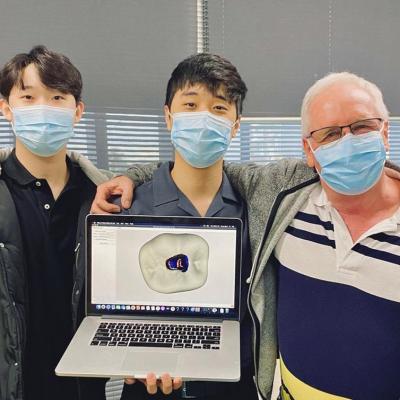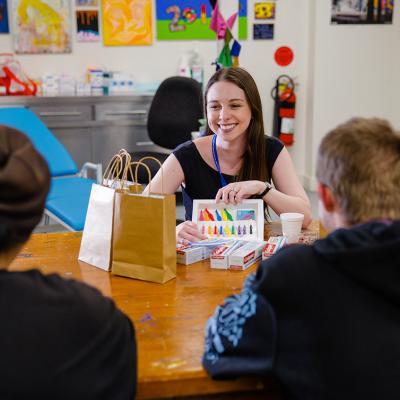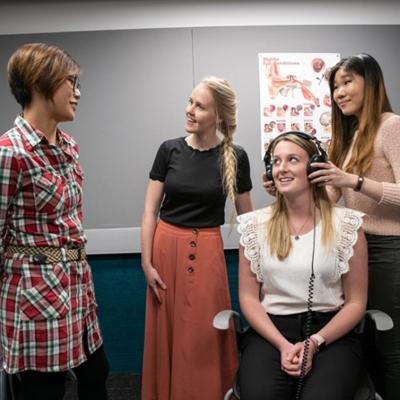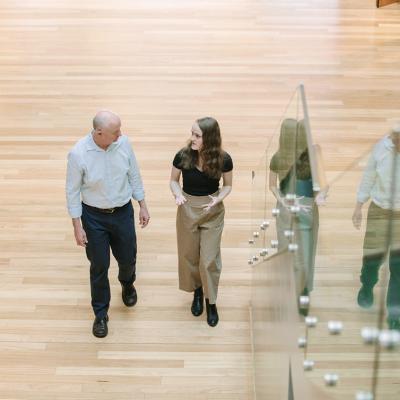Thinking about studying dentistry? Worried it might be too challenging or that you won't enjoy it? We got the inside scoop from brothers Ryan and Sean Choi, two final-year Bachelor of Dental Science (Honours) students at UQ, to find out what led them to this program and what they'll be doing next.
Discover why they chose to study dentistry and why they love this field.
What were your personal motivations for studying dentistry?
Ryan: Initially, my personal motivation for studying dentistry stemmed from my volunteer experience in Yukon, Canada. Yukon is a region where First Nations members suffer from the worst oral health outcomes in Canada, and only a fraction of First Nations people get access to their health benefits due to their circumstances. Shadowing my dentist, Dr. Yul, during this time really inspired me, and I decided to go into dentistry.
Now that I’m a final-year student working in Oral Health Centre and Stafford Dental Clinic, I see a lot of patients every day and learn something new every day. I've realised that the more I learn and study, the better treatment and results I can provide to my patients. So, this motivates me to always learn and study to become a better clinician.
Sean: My personal motivation for studying dentistry lies in seeing the difference I get to make to appreciative patients. Many patients show up to the dentist with some kind of pain, discomfort or worry, and it is a great feeling when I am able to help them on the spot. I realise that often it can take a lot of courage for patients to see the dentist, and knowing that they have placed their trust in me, I feel motivated to help them to the best of my ability.
What kind of person enjoys studying dentistry?
Ryan: I would say that having good communication skills and manual dexterity would be a great bonus to being successful and help you enjoy the field of dentistry. In addition, people who like hands-on learning will definitely enjoy the program, as dentistry undoubtedly involves many hands-on components.
Sean: People who like communicating with people and have good hand skills will tend to go into the clinical aspects of dentistry. In contrast, people who are more passionate in academia will focus more on the academic field of dentistry. Therefore, dentistry is very flexible, and so as long as you have true passion in caring for people, you will enjoy the field.
How hard is dentistry compared to other programs?
Ryan: I can say with confidence that studying dentistry is not easy. We have a very busy schedule involving clinics, pre-clinics, lectures, practicals, workshops, case presentations and research. Often, it can be stressful and overwhelming, and it's not easy to excel in all these facets.
However, with a great work ethic, positive mindset, great mentors, and supportive peers and staff, you can definitely get through it. In addition, dentistry at UQ involves lots of clinical and practical components. Depending on your level of manual dexterity, interpersonal skills, leadership skills and organisational skills, you may find the program more interesting, enjoyable and fulfilling compared to other programs.
What are the most challenging courses in the program? How did you overcome these challenges?
Ryan: Some of the most challenging courses in the program would be Biochemistry of Metabolism in Health & Diseases (Biochemistry and Molecular Biology for Dentists) and Head & Neck Anatomy for Dentistry.
Personally, I find Head & Neck Anatomy for Dentistry to be more challenging, as there are so many anatomical structures of the head, neck and orofacial region that we, as future dentists, must know in depth. The course also involves practical components, such as cadavers and local anaesthetic administration technique. Therefore, it is crucial to be prepared and know your study materials prior to attending these practical sessions in order to maximise your learning.
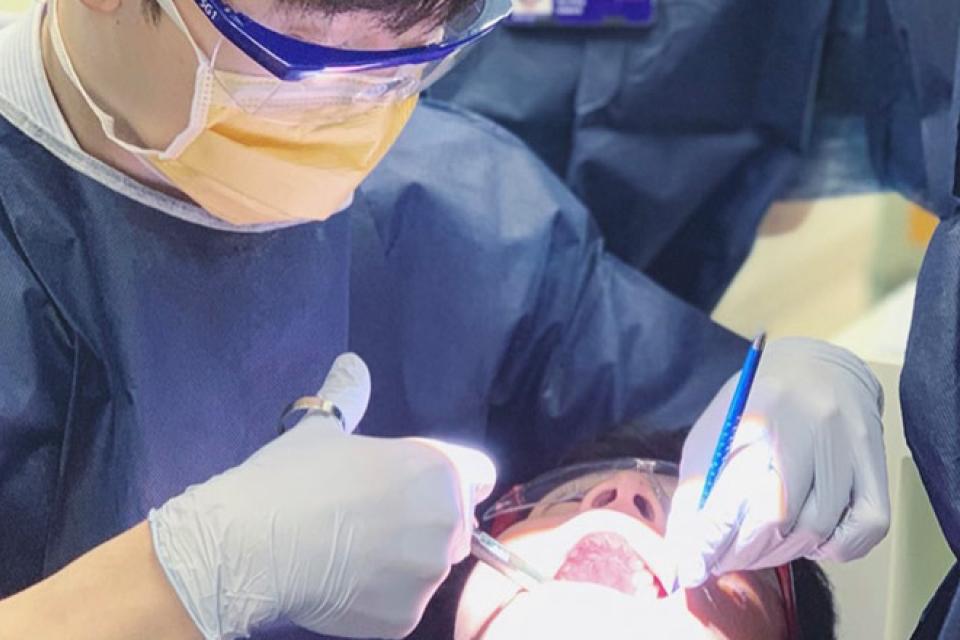
In their 2nd year, UQ dentistry students practise injecting local anaesthetics on each other to experience what it feels like to be anesthetised and learn how to place it properly. This photo shows Ryan practising his local anaesthetic administration technique under supervision in 2019.
With Head & Neck Anatomy for Dentistry, it's really important to understand the big picture instead of purely memorising everything. Although there's a lot of information to assimilate, understanding how everything connects with each other will allow better memory retention.
Specifically, what worked best for me was to try to visualise all the structures and repeatedly recall the information. Drawing also works quite well with understanding / memorising anatomical structures of the head, neck and orofacial region. In addition, reviewing the study materials prior to attending practical sessions will definitely help you absorb practical knowledge quickly.
Have the challenges been worth it? Why?
Ryan: Yes. As a final-year dentistry student at UQ reflecting on my experiences, I can say challenges and difficulties always come and go. What’s really important is how you manage them and overcome them.
For example, I initially found the Head & Neck Anatomy course to be very difficult, and there were many challenges in the way. However, I found the ways that would work for me to efficiently learn the course materials, and now I feel much more confident treating my patients with the help of my knowledge. I feel much more confident with my anaesthetic administration technique too.
"I would definitely say that all the challenges have been worth it, allowing improvements in myself."
What are your career aspirations?
Ryan: Over the last year, I’ve learned that the field of dentistry is not only limited to being a clinician; there’s definitely more to it.
First, being a good clinician would be my main focus upon graduating to provide the best care for my patients. But also, working with Professor Ove Peters, Professor Alex Forrest and Professor Christine Peters this year with research papers, I want to continue pursuing my passion in the research field throughout my career.
In addition, Sean and I hope to open up a clinic one day to serve the community and provide the best care for our patients. Another goal I have is, I would be very interested to work with universities to hold lectures and be part of the clinics to supervise the students in the future, as I enjoy teaching.
Sean: So far in my final year, it has been a great pleasure learning every day from my supervisors and mentors. As a believer in lifelong learning, once I graduate, I hope to continue networking with talented clinicians and taking courses around the world to become a confident clinician, so that my patients – including my friends and families – can trust and rely on me for complex procedures.
Aside from clinical dentistry, I also hope to make advancements in the field of dental technology. Technology can make some of the boring, daunting aspects of dentistry exciting and efficient, so Ryan and I hope to continue our research project with the mentioned professors to explore this field further.
What kind of career paths/salaries are typical for graduates in dentistry?
Sean: The possible career paths in dentistry are very diverse. The most common path taken for new graduates is to work for a few years as an associate dentist then consider buying or starting up their own practice. General dentists can also choose to specialise in fields such as orthodontics, oral surgery, endodontics, and more.
Academia and research are also options for the innovative, forward-thinking minds, while part-time work could be an option for those wishing to spend more time with their family.
"In reality, no two dentists’ career paths look the same, and that is something I love about dentistry, which is that you can shape your own career path unique to your passion, lifestyle, and interests."
Ryan: Typically, the income will really depend on various factors: location, work days, size of the clinic, clinic experiences, patient flow, salary vs. commission, associate vs. owner, and so on. I believe the typical yearly income for a new graduate would be between $80,000 to $200,000, and it increases with years of experience.
Find out what studying dentistry is like at UQ in this previous interview with Ryan and Sean, or keep up to date with the brothers' endeavours in dentistry by following Sean and Ryan on Instagram.

